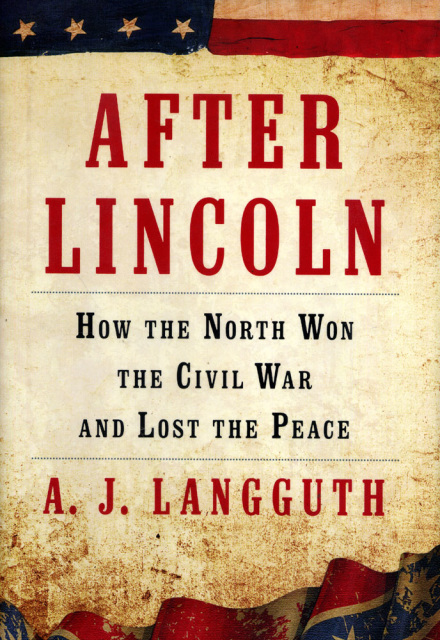- U.S. History -- Civil War Period: 1861 - 1865
- >
- AFTER LINCOLN: HOW THE NORTH WON THE CIVIL WAR AND LOST THE PEACE by A.J. Langguth
AFTER LINCOLN: HOW THE NORTH WON THE CIVIL WAR AND LOST THE PEACE by A.J. Langguth
SKU:
$17.00
$17.00
Unavailable
per item
After Lincoln: How the North Won the Civil War and Lost the Peace by A.J. Langguth
With Lincoln's assassination, his team of rivals was left adrift. His successor, Andrew Johnson, a former slave owner from Tennessee, was challenged by Republicans in the Congress led by Thaddeus Stephens and Charles Sumner. The radicals wanted to punish the defeated South. When the president tried to fire Secretary of War Edwin Stanton, the House of Representatives impeached him. Johnson was acquitted in his senate trial -- presided over by Chief Justice Salmon Chase, formerly Lincoln's Secretary of the Treasury -- by only one vote. Even William Seward, Lincoln's Secretary of State and closest ally in his cabinet, wavered on how to bring the South back into the nation.
In the next presidential contest, a united Republican Party nominated Ulysses S. Grant, Lincoln's winning general. But Grant's attempts to reconcile the Confederacy with the triumphant Union and to quash the rising Ku Klux Klan were undercut by implacable Southern resistance and by corruption during Grant's two terms.
Reconstruction died only and unofficially in 1887 when Republican Rutherford Hayes joined with the Democrats in a deal that took the last federal troops out of South Carolina and Louisiana. In 1964, President Lyndon Johnson signed a bill with civil protections that were first proposed in 1872 by Massachusetts senator Charles Sumner.
Once more, A.J. Langguth has written an impressive narrative that, as Jon Meacham has said of his work, succeeds in "reminding us anew of how relevant and compelling the past can be."
Simon & Schuster, Hardcover, 2014
This is a BRAND NEW book. There is a "closeout/remainder" mark on the top page edges.
With Lincoln's assassination, his team of rivals was left adrift. His successor, Andrew Johnson, a former slave owner from Tennessee, was challenged by Republicans in the Congress led by Thaddeus Stephens and Charles Sumner. The radicals wanted to punish the defeated South. When the president tried to fire Secretary of War Edwin Stanton, the House of Representatives impeached him. Johnson was acquitted in his senate trial -- presided over by Chief Justice Salmon Chase, formerly Lincoln's Secretary of the Treasury -- by only one vote. Even William Seward, Lincoln's Secretary of State and closest ally in his cabinet, wavered on how to bring the South back into the nation.
In the next presidential contest, a united Republican Party nominated Ulysses S. Grant, Lincoln's winning general. But Grant's attempts to reconcile the Confederacy with the triumphant Union and to quash the rising Ku Klux Klan were undercut by implacable Southern resistance and by corruption during Grant's two terms.
Reconstruction died only and unofficially in 1887 when Republican Rutherford Hayes joined with the Democrats in a deal that took the last federal troops out of South Carolina and Louisiana. In 1964, President Lyndon Johnson signed a bill with civil protections that were first proposed in 1872 by Massachusetts senator Charles Sumner.
Once more, A.J. Langguth has written an impressive narrative that, as Jon Meacham has said of his work, succeeds in "reminding us anew of how relevant and compelling the past can be."
Simon & Schuster, Hardcover, 2014
This is a BRAND NEW book. There is a "closeout/remainder" mark on the top page edges.
1 available
